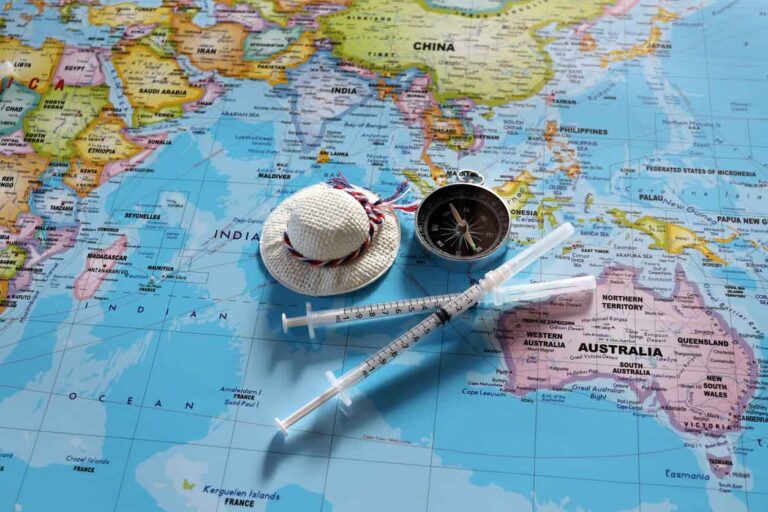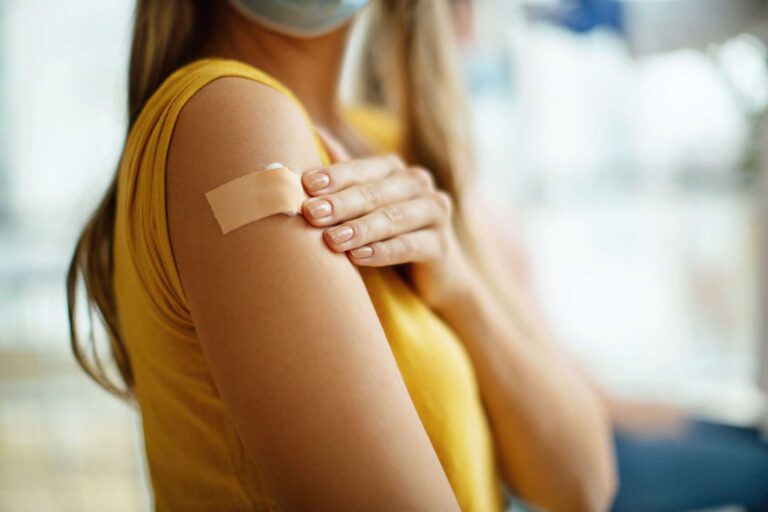Traveling to a new country is an exciting experience, but it can also be risky for your health. Different parts of the world are prone to different diseases, and you may be exposed to viruses or infections that your immune system has not encountered before. That’s why it’s important to be prepared and get the necessary travel vaccinations before you go abroad.
Travel vaccinations are designed to protect you from diseases that are prevalent in other parts of the world. Some countries require certain vaccinations as a condition of entry, while others may recommend them based on the risk of disease transmission. The vaccinations you need will depend on your travel destination, the length of your stay, and your health status.

Here are some important things you need to know before you go abroad :
Research Your Travel Destination
Before you book your trip, it’s important to research your travel destination to find out what vaccinations you need. Check the CDC’s website or consult with a travel medicine specialist to learn about the specific health risks associated with your destination, as well as any vaccination requirements or recommendations. Some countries may have outbreaks of diseases such as yellow fever, typhoid, or cholera, which can be prevented by vaccines.
Plan Ahead
It’s important to plan ahead and get your travel vaccinations well in advance of your departure date. Some vaccinations require multiple doses or a waiting period before they become effective, so it’s best to start the process at least 4-6 weeks before your trip. You should also make sure that you have a record of your vaccinations, as some countries may require proof of vaccination before they allow you to enter.
Consult with a Healthcare Provider
Consult with a healthcare provider or a travel medicine specialist before getting vaccinated. They can evaluate your health history, current health status, and travel plans to determine which vaccinations are necessary for you. They can also advise you on any potential side effects or interactions with other medications you may be taking.
COMMON TRAVEL VACCINATIONS
Here are some of the most common travel vaccinations that you may need :
Hepatitis A:- This vaccine protects against the hepatitis A virus, which is transmitted through contaminated food and water in many parts of the world. The vaccine requires two doses, given 6-12 months apart.
Typhoid:- This vaccine protects against typhoid fever, a bacterial infection transmitted through contaminated food and water in developing countries. The vaccine can be given as a single dose injection or as a series of capsules taken orally.
Yellow Fever:- This vaccine is required for entry into some countries in Africa and South America. It protects against the yellow fever virus, which is transmitted through mosquito bites. The vaccine requires a single dose and provides lifelong protection.
Rabies:- This vaccine is recommended for travelers who may be at risk of animal bites, such as those who will be spending time in rural areas or working with animals. The vaccine requires a series of 3-4 doses, given over a period of several weeks.
Cholera:- This vaccine is recommended for travelers to areas with ongoing cholera outbreaks. The vaccine requires two doses, given 1-6 weeks apart.
Meningococcal:- This vaccine is recommended for travelers to areas with high rates of meningococcal diseases, such as sub-Saharan Africa during the dry season. The vaccine requires a single dose and provides protection for up to 5 years.

OTHER PRECAUTIONS
In addition to getting the necessary travel vaccinations, there are other precautions you can take to protect your health while traveling. These include :
Practicing good hygiene:- Wash your hands frequently, especially before eating or preparing food, and after using the bathroom. Use hand sanitizer when soap and water are not available.
Protecting yourself from insect bites:- Wear long-sleeved shirts and pants, use insect repellent, and sleep under mosquito nets to avoid bites from disease-carrying insects.
Avoid contaminated food and water:- Drink only bottled or boiled water, and avoid ice, raw fruits and vegetables, and other foods that may have been washed with contaminated water.
Taking precautions against altitude sickness:- If you are traveling to high-altitude destinations, take time to acclimate slowly to the altitude and drink plenty of fluids to avoid dehydration.
Protecting yourself from the sun:- Wear protective clothing and sunscreen to avoid sunburn and the risk of skin cancer.
In conclusion, getting the necessary travel vaccinations is an important part of preparing for a trip abroad. By researching your travel destination, planning ahead, consulting with a healthcare provider, and taking other precautions, you can protect yourself from a variety of diseases and enjoy a safe and healthy trip. Don’t take any chances with your health when traveling abroad – be prepared and get vaccinated!
Travel vaccinations are crucial for a safe and healthy international trip. This guide provides essential information on the vaccines you need, their significance, and how to prepare them to stay protected while traveling. To book an appointment with Specialty Care Clinics call (469) 545-9983.
